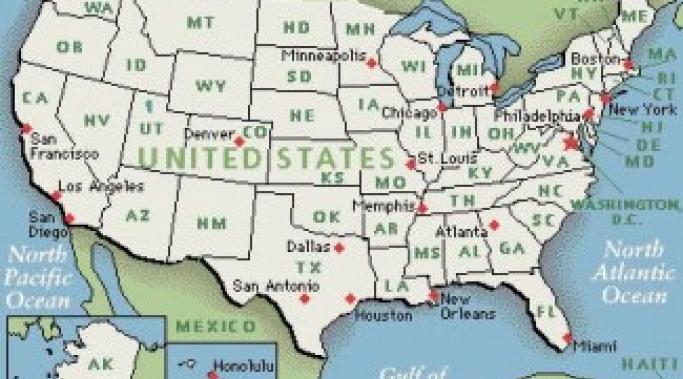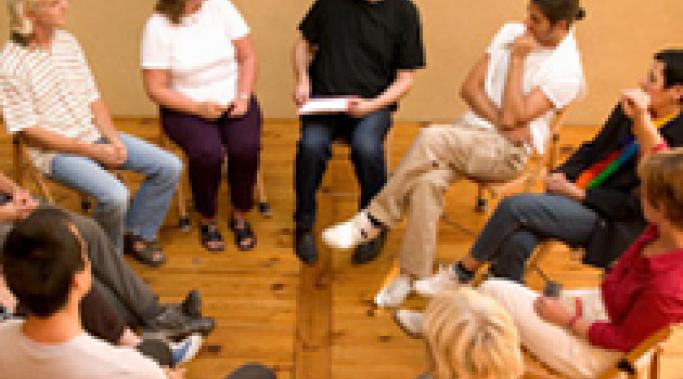I recently read an article about a new class of mental health professionals in Kentucky--licensed pastoral counselors. Due to my negative experience with Christian counseling, I am hesitant, but cautiously optimistic. I can understand both sides of the argument, but here's why I think it's a good idea.
Borderline Treatment
I was diagnosed with severe mental illness while I was a sophomore in college. I was suicidal, which prompted an emergency psychiatric evaluation. Unfortunately, it also prompted eviction from the dorm and suspension from school. I later got the director of the counseling center to admit--on the record--that the policy was more for the benefit of other students than the suicidal student. It was not the most compassionate of policies. So how can colleges and universities help students with mental illness?
After being medically discharged from the Army, More Than Borderline's Becky Oberg returned to Indianapolis to begin mental illness treatment. She soon learned that her location determined her access to borderline personality disorder (BPD) treatment almost as much as her insurance. She first saw a doctor in private practice, but transferred to a sliding-scale clinic after her COBRA ran out. She became suicidal and psychotic, but the hospital that treated cases like hers from her county was full. She was admitted to a different hospital, which wiped out her life savings because she was not eligible for its reduced rate.
My brother recently posted a picture of a T-shirt that read "It's an Oberg thing. You wouldn't understand." This struck me as funny because our last name is not exactly common. It got better when I started reading the comments--all these other people with the last name Oberg who thought they were the only ones was intriguing enough, but my favorite comment was, "Has anyone else spent their life going 'No, it's not Irish, there's no apostrophe?" I loved the whole thread.
It taught me an important lesson about group therapy--namely, it can be just as effective as individual therapy.
The Supreme Court ruled 5-4 in Burwell v. Hobby Lobby that an employer does not need to cover contraceptives if it conflicts with a sincerely held religious belief. Some are saying it's a victory for religions liberty, others say it's a startling setback for women. The truth is probably somewhere in the middle. But this is a column about mental illness, and what the recent decision means for mental health consumers. In short, we're in danger.
My apartment complex has become infested with bedbugs and roaches, so the landlord has moved us to a small hotel in northern Indianapolis. The move has been chaotic--some of my neighbors have left altogether, some have been threatened with arrest for panhandling or smoking, and getting to medical appointments relies on a superb knowledge of the bus schedule. Yet I'm holding up well thanks to Alcoholic's Anonymous (AA) and therapy. It is possible to have serenity in the midst of chaos.
Sometimes houses of worship are not the sanctuaries we need them to be. Many people of faith believe that mental illness is a spiritual problem, which hurts everyone involved. More Than Borderline's, Becky Oberg, endured two exorcisms at the hands of a charismatic non-denominational church, eventually leaving when she realized they would not accept her mental illness or her.
Sadly, one of my previous posts can be recycled. I wrote about whether or not people with severe mental illnesses should have firearm rights after the events in Aurora, Colorado (Should People with a Mental Illness Have Firearm Rights). Now there's been another killing spree in which mental illness may have been a factor. I would not be surprised if Elliot Rodger had a diagnosis of borderline personality disorder (BPD)--his difficulty in relationships and inappropriate anger are two symptoms of the disorder. It raises the question, "Is locking up people with borderline the answer?"
I am a firm believer in the healing power of service; I've found it helps with my borderline personality disorder symptoms. In the years that I've done service, I've learned many things--for example, the week I spent in Haiti straight out of high school taught me I didn't know jack about how American foreign policy affects the poor, but I digress. Three lessons I've learned are: you get back what you give, someone always has it worse than you, and helping others brings us closer to our Higher Power.
One of my friends from AA relapsed recently. Her struggle has caused me to learn many things. One is that alcoholism is a progressive, deadly disease that is "cunning, baffling and powerful", and that you must always be on guard because alcohol relapse is easy, no matter how many years sober you have. The second is that you have to have a reason to stay sober, and you have to work at it. The third is that alcoholism relapse can happen to anyone.









